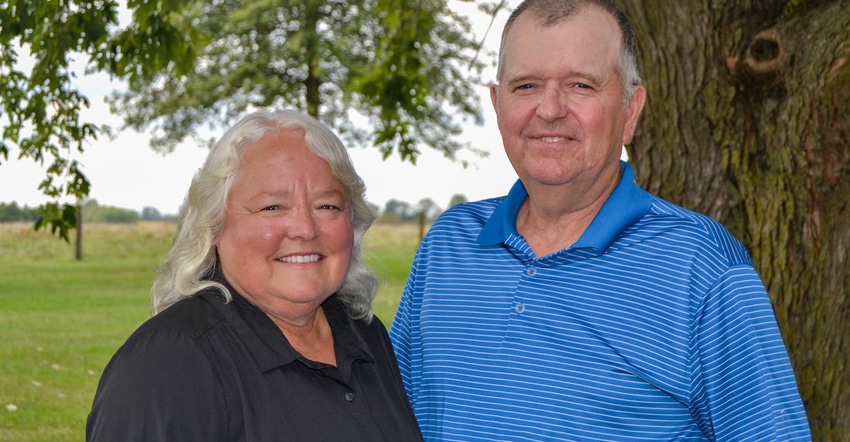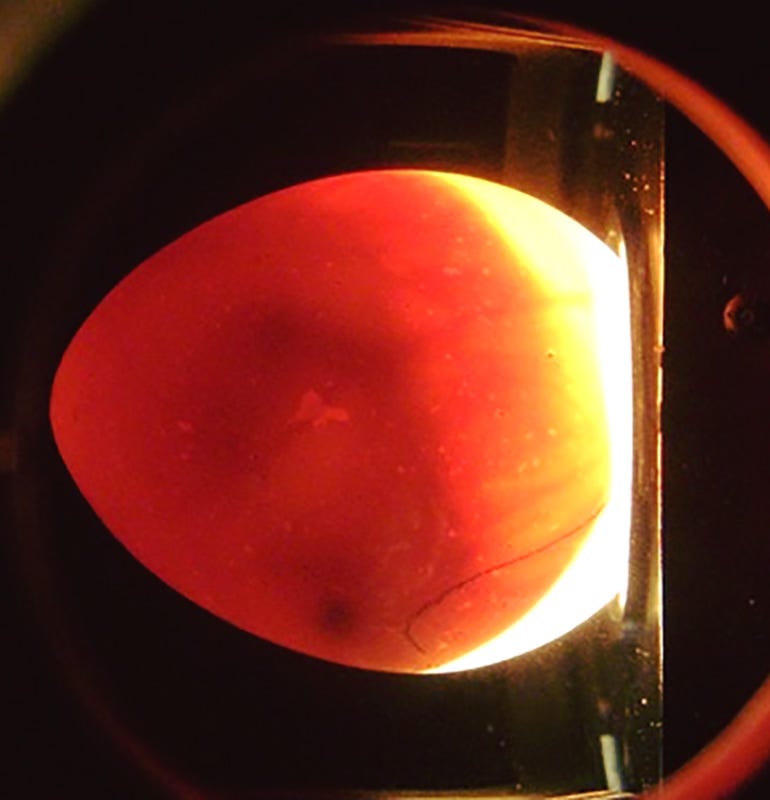
The UTV tailgate is down. On it are medicines, needles and castration tools. In any other year, Cathy Baker would be standing alongside it holding a syringe, surrounded by 4-H members. In 2020, as the coronavirus requires social distancing, only her granddaughter is present to capture a virtual beef project meeting.
Baker is a beef leader for the Home Pioneer 4-H Club. She and her husband, Bob, are cow-calf operators near Atlanta, Mo. In the video, she shares how cows have calved in the same barn for 48 years on the family farm. Before turning their roughly 220 calves out to spring pasture, each one receives a series of vaccinations.
“First thing we have to do to a calf born in the barn is give this vaccination, which is a Bovine rotavirus, coronavirus, which sounds familiar this year,” she says. She explains to 4-H members watching how to administer the modified live vaccine. The cattlewoman also provides video and instruction on tagging and castrating calves.
Related: Complete coronavirus coverage
Baker is just one 4-H leader going the extra mile during the COVID-19 crisis.
Online education
“For me, it has been absolutely amazing to sit back and watch and see what our employees, specialists, educators and leaders are doing,” says Sarah Traub, University of Missouri Extension director of off-campus operations. “Almost immediately, they pivoted and moved things virtually.”
Traub is the primary liaison between the MU campus and local county engagement specialists. She realizes this time of year is critical for 4-H members. The largest youth organization has a set number of meetings an individual must attend, typically six hours, in order to complete the project.
As summer approaches, many counties require that members meet the requirement before exhibiting at the local fair. Often, the key time for meetings is in the spring, but this year many are canceled.
Because of the coronavirus, Missouri 4-H clubs can no longer meet in person, and this includes individual projects such as beef. However, Missouri 4-H is allowing members to receive their project hours remotely. So, any beef project leader from across the state can have members tune in to Baker’s Facebook video:
Traub admits that sometimes Extension educators get stuck in same routine. “It is great to see how quickly we can change our mindset, think differently and deliver differently,” she says, “not just for those who use Extension regularly, but for all our rural residents.”
Beyond just 4-H
With more parents home-schooling children, there is a need for engaging lessons. Traub says Missouri 4-H is filling that demand.
Missouri 4-H Chick Watch 2020 is part of the embryology project. Many schools across the state participate in incubating eggs in the classroom, but as schools shut down, so did the partnership. Instead, 4-H focused on getting the word out about Chicken Watch 2020.

SEE THEM HATCH: Missouri 4-H opened its embryology project to the web this year as schoolchildren and 4-H members looked for online educational opportunities. The website followed the egg from candling, where light shines to see embryo development inside the egg (shown here), all the way through to hatching.

This allowed students to tune in online to the live camera feed. 4-H also posted updates on the chicks’ progress via Facebook. By mid-April, all the chicks hatched.
In addition, 4-H launched “Quarantime,” which offers demonstrations or talks on project areas such as photography, cooking, sewing and really anything 4-H offers. There are daily live events, as well as recorded Zoom meetings for people to access. The best part, Traub says, is students don’t have to be a 4-H member.
“Before we all had our close-to-home communities,” Traub explains. “Farmers had their community at the coffee shop, local co-op or feed store. The 4-H community was often a local 4-H club or school spin club. Now we’re bringing together people from across the state; it is a much larger community.”
Traub says it has been interesting to see the learning happening during COVID-19. She says Extension educators, 4-H youth specialists and local leaders are going online and sharing their information. “That I hope does not end after coronavirus,” she adds. “I love that part of Extension.”
Read more about:
Covid 19About the Author(s)
You May Also Like






